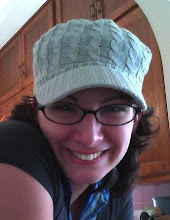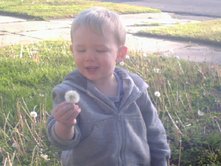
Go ahead and hum the tune that comes to your mind based on the title of this article to yourself. It goes something like this: "Bad boys, bad boys- whatcha gonna do? Whatcha gonna do when they come for you?" Yes, I guess most of us know that one.
At some point or another, nearly everyone takes time to stop clicking the remote and view this show. The police come and get the "bad guy," in order to bring them to justice or save the "bad boy" from himself.
However, I want to take a moment to really consider what it means to utter the words "bad guy."
We do it often. We watch the news and feel relieved when the "bad guy" is caught. We skim through the newspaper and feel terrified when the "bad guy" is loose. We look at the posters hanging in the post office and see the visualization of the "bad guy." We watch the villains in our movies attempt to destroy the hero or heroine and then get excited as the "bad guy" almost inevitably loses.
We even utter such a phrase in the opposite direction. For example we will say, "He's not such a 'bad guy.'" Or even sometimes look at it as an exciting, positive thing. A girl will comment she enjoys the "bad boys."
And thus, I think we can easily establish the phrase "bad boy" or "bad guy" permeates our culture. It is something we barely think about anymore- it is a part of our normal routine.
But as you read this article, I want to challenge you to really think about the term "bad guy."
Is anything or anyone really bad?
When we look at the story of creation in Genesis, one particular phrase jumps out multiple times. And God saw creation was made of "bad boys." Um, no. Over and over it reads, "And God saw that it was GOOD." As we read the creation story, we cannot help but see that the creation and wonder of the matter formed by God's hand is really good!
So then we must ask- what is it that makes something or someone created by God and called "good," APPEAR BAD to us? OR- does it actually change and BECOME BAD to it's very core?
If we claim that something or someone who was created good is genuinely evil or bad to their very being, we would be implying something quite tragic. We would actually be saying this particular part of creation is BEYOND REDEMPTION. If someone is bad to their being- actually "bad" to their core, they would be beyond the ability to be good; to be transformed.
Do any of us really want to call something "bad" and thus imply that created thing is beyond redemption? That this person is beyond the grace of God to transform and be renewed?
If we look closely at scriptures and encounter the God in the Living Word, NOTHING IS BEYOND REDEMPTION. Not even the people who do the most vile, gross, pathetic, disgusting acts. That's a hard one to swallow-- especially if you throw a child being hurt in that mix. Then you just feel sick.
But all those emotional feelings aside to think theologically about what we are really saying: If nothing actually BECOMES "bad," to the very center of its being, then we must ask the other question: What is it that causes that person or created thing to APPEAR bad?
Perhaps it is our choices. This would make sense. Our choices form us into the kinds of people we are.
In fact, brain science teaches us some interesting things about habits and patterns of the mind based on the choices we make. If we choose something once, we are not in a habit quite yet. If we choose it again, we could still make a different choice. Then the third, fourth, fifth... and before long- after we choose to do something bad or good over and over and over again, we lose our ability to really chose.
Our brain is formed into a habit so it literally becomes a reflex over a choice (for more explanation on this see the text "Liars, Lovers, and Heroes: What Brain Science Reveals About How we Become Who We Are). Our brains are literally formed based on our choices and decisions.
Thus, when we make good choices-- we appear good. When we make bad choices-- we appear bad.
When a person makes bad decisions again and again, that person appears evil to us. And unfortunately, when we experience the evil choices of another, it hurts. It burns our very inside to our core, turning our stomach, and making us sick. We want to label them "the bad guy." We want justice.
But again- I want to call us toward truly thinking about that label "bad guy." Do we really want to say this person is so bad- they are beyond redemption? That the vile, horrible things they did really caused their very being to change? It is something to think about, for sure.
For when we call someone "bad," though it might seem justified to judge a person this way because we have already spent years being formed to focus on ridding our lives and families of evil and containing the world of the "bad ones," we must remember they too were created good.
The world might call them "bad guys" but we are the church! We remember the story of God-- the story of God creating all things good, even humans.
Creation was designed good. Take a moment to REMEMBER our story, God's story. We were created with a purpose, to be beautiful. But sometimes we make bad choices-- and forget how we were created. We choose what we want over what God wants. We sin. We make "bad" choices.
And since we are the church, since we are the body of Christ in the world-- called to be different and set apart; called to make choices towards the redemption of creation and not the destruction of creation-- I would like to pose this challenge: Perhaps what we are really doing is dehumanizing people when we call them "bad guys."
Go ahead, take a minute to process that one. I will say it again to help with the digestion of this one. When we call someone the "bad guy" perhaps we are really dehumanizing them, looking at them as less than ourselves.
In fact, perhaps we even view persons who make bad choices as less than human. We want to claim creation was good, according to Genesis. And thus we want to say humans were created good-- but when we label them as "bad," then we are really saying they are less than the good creation of God.
And if we are dehumanizing people by calling them the "bad guy," then we are participating in a form of oppression (a classy form, mind you), but a form of abuse- nonetheless. We call them "bad" and we thus call ourselves "good." We say they are "bad" and enjoy the power of not being "bad." We label them as "bad" and become the god in our own story.
So who is really making the bad choice here?
Which is the greater evil?
And thus, I really want to ask: Do we have the ability to step beyond our normal view of the world and see who WE REALLY ARE and what we really think? Do we have the GUTS to confront our own selfishness and sin in how we label someone? How we participate in idolatry by making ourselves the god, deciding who is good and who is not?
If we do not find the strength to look deeply inside ourselves with this one, I am afraid the church (and thus all of creation) will suffer. We will have communities filled with people who view "the other" as someone separate from themselves. Someone so different, so vile, so disgusting-- they are beyond the church and far beyond God. We will have faith based groups of people who have eyes only to see the negative. People who look out at the world and only see the pathetic waste of space and have lost their ability to see the beauty and wonder of the good creation-- even in humanity.
If we do find the strength to look deeply inside ourselves and see what we are really saying when we label someone as "bad," I think the potential is boundless. We will see churches who model for the world who they could also be. We will have communities who see God's beauty and vision for all of creation and work towards the redemption of ALL things- not just the "good guys."
Dear God-- grant us the vision to see your beauty in all of created things and forgive us for sinning against our brothers and sisters by dehumanizing them and calling them the "bad guy."




2 comments:
I can really relate to these words. I have been deeply burdened by the students that I work with - those in poverty whose parents are what they are, in some cases, merely the people that birthed them. Am I really doing enough, really doing what God would have me to do to make a difference in these kids' lives? My prayer is that He will take and use what I have to offer for His glory (He has a way of multiplying things) and that I will have my eyes open to His leading, every day.
Beautiful prayer, Vicki.
May God indeed use your life towards the redemption of creation in the classroom with your students this year.
I can see God using you in amazing ways this school year- with loving touch to a hurting child, with hopeful eyes for who that child can become, with actions that treat the child for who you see they can be.
Post a Comment